For many people, Fridays are synonymous with relaxing or socialising. And if you ask a group what their idea of unwinding looks like, the most common answer often involves cracking open a beer with friends. But have you ever stopped to think about the effect regular beer consumption has on your body? From weight gain to liver issues, the impact of beer can be more serious than it seems. If you drink often or even moderately every day, this might be the right time to take a closer look. Here is what really happens to your body when you drink beer regularly.
Also Read: Jowar Roti vs Ragi Roti: Which One Is More Effective For Weight Loss
Beer Calories, Alcohol Content and More: What You Are Drinking
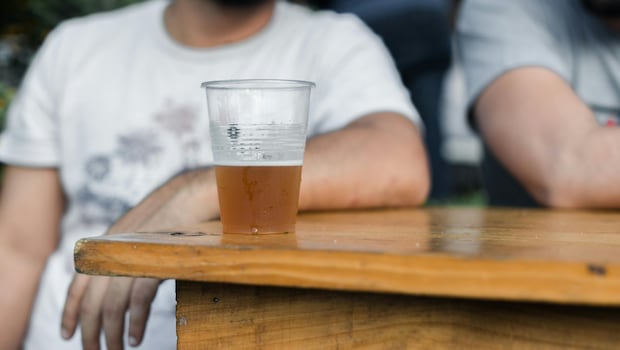
Beer Health Effects. Photo: Pexels
Before understanding how beer affects the body, let us first look at its nutritional breakdown. According to the official USDA website, a 355 mL serving of regular beer contains:
Calories: 153
Protein: 2 g
Total fat: 0 g
Carbohydrates: 13 g
Fibre: 0 g
Sugars: 0 g
Alcohol: 14 g
Magnesium: 21 mg
Phosphorus: 50 mg
These numbers may appear modest, but over time, they can stack up and contribute to various health concerns.
5 Effects of Drinking Beer Every Day
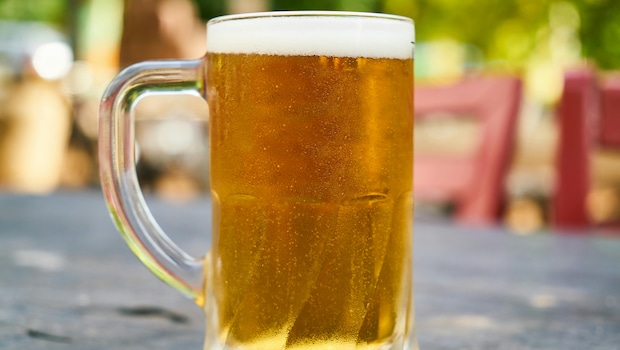
Beer Health Effects. Photo: Pexels
Regular beer consumption may start off as an occasional indulgence but can have long-term consequences if it becomes a habit. Here is what happens to your body when beer becomes a daily fixture.
1. Liver Health Can Be Severely Affected
Daily beer consumption puts your liver on overdrive. It is constantly tasked with metabolising ethanol, which triggers inflammation in the body. A study published in the Journal of Hepatology found that chronic beer intake can cause oxidative stress, leading to liver damage. Over time, this can result in conditions such as fatty liver disease and liver fibrosis. Prolonged drinking, even in moderate amounts, can push your liver into dangerous territory.
2. Gut Health May Deteriorate
It might come as a surprise, but regular beer intake can disrupt your gut microbiome—the delicate balance of good and bad bacteria in your digestive system. Research published in Gastroenterology revealed that chronic alcohol consumption can alter gut bacteria, impacting the way your body absorbs and processes nutrients. This imbalance can lead to:
Bloating
Diarrhoea
Poor nutrient absorption
Systemic inflammation
3. It Can Harm Your Heart Over Time
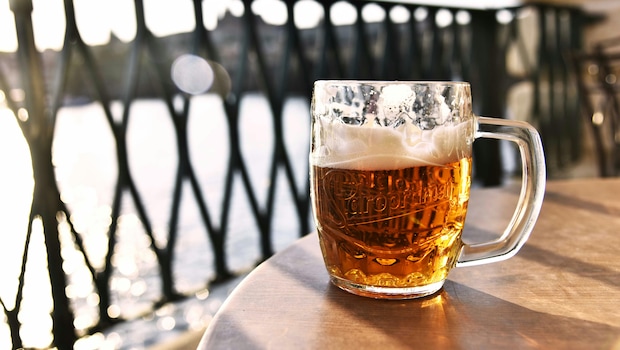
Beer Health Effects. Photo: Pexels
Some research points to potential cardiovascular benefits from occasional alcohol consumption. However, drinking beer daily can have quite the opposite effect. An article published in the Journal of the American College of Cardiology highlighted how excessive drinking can cause high blood pressure, heart disease, and stroke. Long-term, regular consumption puts significant strain on the cardiovascular system and can weaken heart function.
4. Your Brain Health May Decline
Weekends filled with bottles of beer might seem like harmless fun, but the effect on your brain may be more lasting than you think. Daily drinking can interfere with the brain's communication pathways. It slows down reaction time, clouds judgement, and in the long term, may result in memory problems. A study in the International Journal of High Risk Behaviour and Addiction also stated that chronic beer consumption may raise the risk of dementia. It can also contribute to:
Mood swings
Short-term memory lapses
Impaired decision-making
5. Weight Gain and Belly Fat Are Likely
Yes, the term "beer belly" does not come from nowhere. Beer is calorie-dense and offers little nutritional value. Regular consumption can lead to an increase in visceral fat, particularly around the waist. A study in the European Journal of Clinical Nutrition found a direct link between beer intake and waist circumference. Some risks associated with visceral fat include:
Type 2 diabetes
Reduced metabolic rate
Insulin resistance
Higher risk of cardiovascular disease
Signs You May Be Drinking Too Much Beer
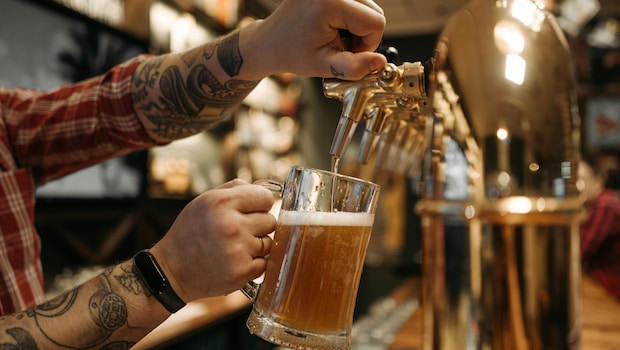
Beer Health Effects. Photo: Pexels
While the above effects take time to show up, there are early signs that can indicate beer might be affecting your health more than you think. These include:
Constant fatigue, especially after drinking
Bloating and digestive discomfort
Interrupted sleep or night sweats
Frequent irritability or mood swings
Unexplained weight gain or puffiness around the waist
Reduced focus and poor concentration
If any of these sound familiar, it may be worth re-evaluating how often you drink and how it is affecting your day-to-day life.
Is There Any Safe Amount of Beer?
The big question remains—how much beer is too much? According to a 2023 statement by the World Health Organization, there is no safe amount of beer consumption that does not impact health. Even so-called "moderate" or "light" drinking is not risk-free. The WHO stresses that the risk begins from the first drop. In short, the less you drink, the better your long-term health prospects.
What Happens If You Stop Drinking Beer Every Day?
If you are thinking of cutting back, here is some good news: your body begins to bounce back faster than you might expect. Within days or weeks of reducing your intake, you may notice:
Improved digestion
Better sleep quality
Sharper focus and mental clarity
Reduced bloating
A flatter waistline
Lower blood pressure and improved mood
In the long run, you also reduce your risk of liver damage, heart problems, and mental health issues.
What Are Healthier Alternatives to Beer?
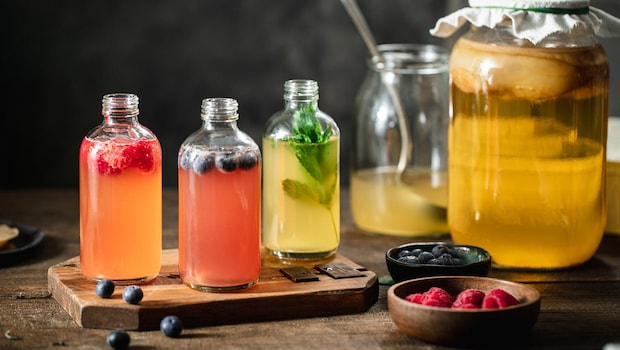
If all this has got you thinking about cutting back, you are not alone. There are plenty of healthier drinks that offer hydration, a sense of ritual, and even that fizzy mouthfeel—without the health risks of alcohol. Here are some you can consider:
Kombucha:
This fermented tea is rich in probiotics and mimics the fizz of beer without the alcohol. It is also known for supporting gut health and is generally low in sugar.
Sparkling Water with Fruit:
Add slices of lemon, cucumber, basil, or mint to sparkling water for a refreshing, custom-made drink that is light and satisfying.
Coconut Water:
Naturally hydrating and rich in minerals like calcium and potassium, coconut water is low in sugar and perfect for those looking to reduce alcohol intake.
Herbal Teas:
Varieties such as chamomile, peppermint, or hibiscus offer refreshing flavours without the crash or calories. They also support digestion and help with relaxation.
Matcha Tea:
Rich in antioxidants and L-theanine, matcha is known to support calm focus. It can be a soothing alternative for those who tend to use alcohol to unwind. You can easily make it at home as well.
Also Read: Does Grinding Or Blending Food Destroy Its Nutrients? An Expert Weighs In
How To Cut Down On Beer Without Feeling Left Out
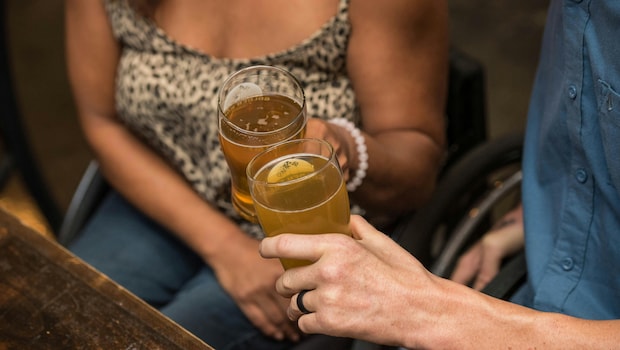
Beer Health Effects. Photo: Pexels
Trying to reduce beer but worried about missing out socially? Here are a few realistic ways to manage that:
Alternate alcoholic drinks with water or non-alcoholic versions
Set a beer limit before you start socialising
Let your close friends know so they can support you
Pour kombucha or seltzer into a fancy glass to mimic the ritual
Try weekday cutbacks and limit drinking to only one or two days a week
Making small changes can still make you feel part of the group—without putting your health at risk.
Disclaimer: This content including advice provides generic information only. It is in no way a substitute for qualified medical opinion. Always consult a specialist or your doctor for more information. NDTV does not claim responsibility for this information.
About Nikita NikhilMeet Nikita, a passionate soul with an insatiable love for two things in life: Bollywood and food! When she's not indulging in binge-watching sessions, Nikita can be found behind the lens capturing moments or expressing her creativity through painting.











